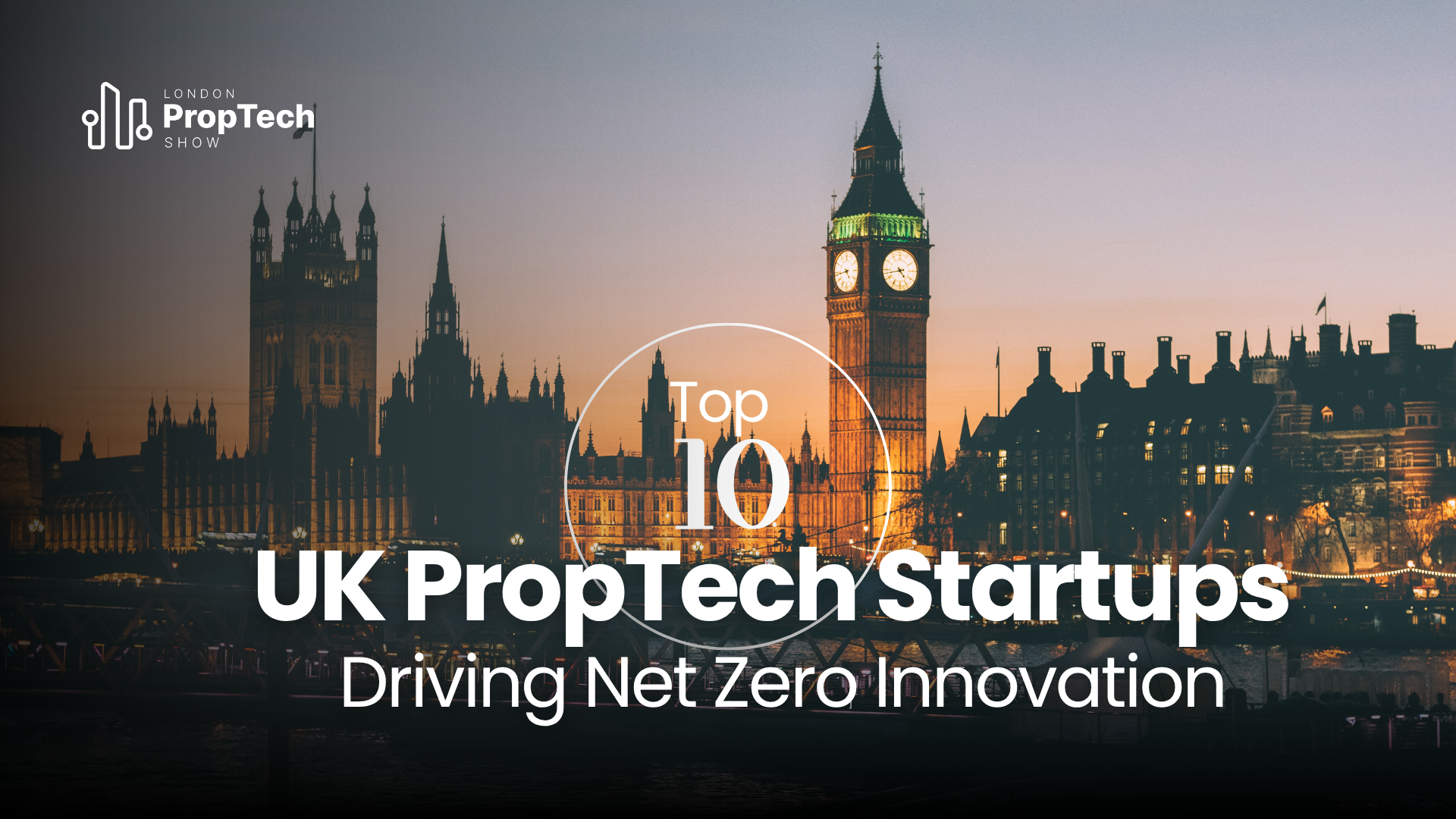The UK’s transition towards net zero by 2050 has made property technology (PropTech) central to how the built environment responds to sustainability challenges. In 2025, PropTech startups are tackling complex decarbonisation goals, shaping greener homes and urban spaces, and enabling compliance with the Future Homes Standard. But which fast-growing companies are making the biggest impact right now?
This blog spotlights ten UK startups whose innovations support the nation’s net zero objectives through data-driven efficiency, low-carbon retrofits, sustainable construction, and climate resilience tools.
1. Nimbus
Nimbus stands out as the UK’s top PropTech startup for 2025, according to recent industry rankings. This Warwick-based company offers a map data platform enabling property professionals to plan, acquire, and manage sites sustainably. Nimbus integrates environmental constraints such as flood risk, proximity to green spaces, and low-carbon infrastructure, supporting developers and planners to align with net zero strategies from the outset. Its robust database powers smarter site selection and faster, greener development cycles, vital for meeting Future Homes Standard requirements.
2. Street Group
Manchester’s Street Group, known for platforms Street.co.uk and Spectre, helps property agents drive net zero progress through smarter sales, letting, and client communications. Street Group uses digital contracts and process automation to cut paper waste while its client reporting dashboard allows agencies to monitor and disclose sustainability performance. As estate agencies increasingly pursue net zero credentials to stay competitive, Street Group’s tools are raising the bar for compliance and ESG transparency.
3. Cloud
Colchester-based Cloud is making real-time property management greener. Its AI-powered software platforms enable landlords, funds, and consultants to manage risks, costs, and milestones throughout the lifecycle of a building. Cloud’s dashboards include energy usage analytics, carbon footprint tracking, and maintenance automation, helping landlords comply with new building regulations and Future Homes Standard benchmarks. The ability to monitor operational and embodied carbon in one system is fast becoming a standard for responsible property ownership.
4. fu3e.
Fu3e. operates in the AI space for project management, optimizing real estate workflows and driving net zero compliance at scale. By leveraging live data across risk, cost, schedule, and sustainability metrics, fu3e. enables faster decision-making for new builds and retrofits. Their platform fosters climate-conscious design and construction, offering real-time ESG reporting a must-have given increasing investor scrutiny over carbon performance and regulatory alignment.
5. Glider
Glider helps asset managers, developers, and contractors digitise their building information, streamlining compliance with net zero standards. Its platform allows users to export and validate data for BREEAM and other sustainability certifications, integrating carbon calculations for materials and operations. With life-cycle assessments now central to planning approvals and voluntary reporting, Glider’s BIM tools ensure net zero targets can be documented and achieved at asset and portfolio scale.
6. Chameleon Technology
Harrogate-based Chameleon Technology is driving UK energy innovation with its smart home solutions. Chameleon’s digital displays empower residents to monitor energy usage in real time, choose low-carbon tariffs, and reduce their environmental impact. As heat pumps, solar panels, and battery storage roll out under the new Future Homes Standard, Chameleon’s technology ensures everyday users become active contributors to net zero targets, bridging the gap between infrastructure and individual action.
7. Spring
Spring, Croydon’s largest homebuyer platform, brings sustainability to residential transactions. Its digital-first model streamlines the buying and selling process, reducing paperwork and emissions attributed to property deals. Spring also promotes energy-efficient homes and provides buyers with information on properties’ sustainability features, supporting faster adoption of green building practices in the resale market. With every transaction, Spring is accelerating the mainstreaming of net zero standards throughout UK housing stock.
8. Watergate
Water efficiency is crucial for net zero, and Watergate, part of the 2025 REACH UK PropTech cohort offers an AI-driven platform to cut leaks, waste, and cost by up to 68%. Watergate’s sensors and analytics are deployed across commercial buildings, social housing, and retrofit projects, helping landlords hit water and energy targets. The platform’s live monitoring enables rapid response to wastage, fulfilling the Future Homes Standard’s call for resource-efficient building operations.
9. Carrot
Carrot’s innovative waste data analytics system reduces property and portfolio waste by 30%, helping managers deliver net zero and ESG goals across commercial and residential estates. Carrot allows asset owners to monitor, benchmark, and report on waste streams, influencing operational strategy and making compliance easier ahead of the 2025 ESRS (European Sustainability Reporting Standards). With sustainable resource management now key for regulatory and investor requirements, Carrot is a crucial solution for modern property teams.
10. Didimi
Didimi, launched in 2025, solves a critical challenge: integrating property management systems for smarter compliance and reporting. Their cloud-based platform automates the capture and submission of carbon, energy, and compliance data, allowing firms to streamline operations and keep pace with regulatory change. Didimi’s open architecture connects legacy ERP systems with the latest climate tech ideal for mid-sized firms struggling with digital transformation. As the pace of net zero legislation increases, solutions like Didimi are proving essential for sector-wide impact.
The Bigger Picture: PropTech Empowering Net Zero
Across these startups, five defining themes stand out:
- Data-Driven Decisions: Platforms like Nimbus and fu3e. are making sustainable insights routine for developers, planners, and landlords.
- Operational Resource Efficiency: The likes of Watergate and Carrot are tackling water and waste at the source, supporting the Future Homes Standard.
- ESG Reporting at Scale: fu3e., Cloud, and Glider drive unified compliance, putting net zero at the heart of every property lifecycle.
- User Empowerment: Chameleon turns energy data into action for residents, bringing consumers into the net zero journey.
- Integration & Accessibility: Didimi and Spring ensure solutions reach mainstream property professionals and homebuyers.
Crucially, all these startups are not just responding to regulation they’re accelerating adoption, closing market gaps, and shaping the new normal for UK real estate. In 2025, with new legislative changes (including mandatory solar panels and heat pumps in new homes), net zero PropTech solutions are no longer a nice-to-have; they're a sector imperative.
Supported by major funds, government programmes like Innovate UK’s Net Zero Living, and industry initiatives (UK PropTech Awards 2025), these startups are unlocking faster, data-driven, and scalable impact. Whether you’re a developer, housing association, investor, or homebuyer, these PropTech companies are setting the pace for a smarter, cleaner built environment.
Conclusion
As the UK moves forward with its net zero agenda, PropTech startups are providing the vision, tools, and actionable solutions the property industry needs. From energy analytics and waste management to AI-powered compliance and sustainable building materials, these ten innovators lead the way in transforming both new and existing homes. The Future Homes Standard sets the regulatory foundation; startups deliver the practical solutions.
In 2025 and beyond, PropTech is not just supporting net zero, but driving it faster, smarter, and more transparently than ever before.


